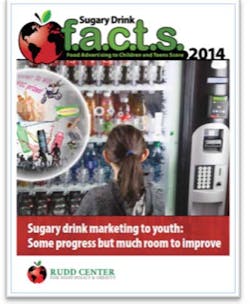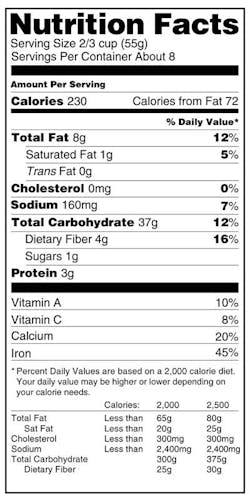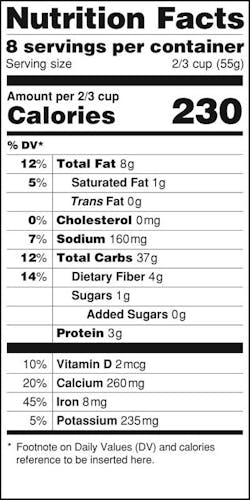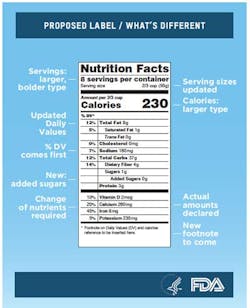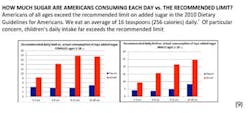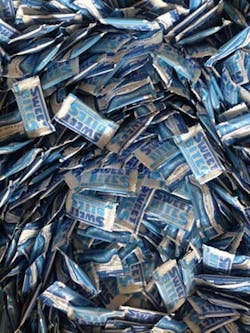Is sugar toxic? Some of the latest news for those with a sweet tooth
Some people claim to have a “sweet tooth,” or to be addicted to sugar in various forms. We know that different types of sugar may have different effects on the body. Depending on the individual, even safe levels of sugar could have serious negative effects on someone’s health, including oral health. In this article we’ll discuss some new issues regarding this ubiquitous product.
A new report, “Sugary Drink FACTS 2014,” examines the nutrition of more than 900 drink products, and quantifies the marketing practices of 23 different beverage companies.(1) The first report was published in 2011. Prepared by Yale University's Rudd Center for Food Policy and Obesity, the report discusses the changes in sugary drink nutrition and marketing to children and teens over the past three years. According to the report, there has been improvement in beverage marketing to youth between 2010 and 2013.
However, according to the Robert Wood Johnson Foundation, there is still room for improvement. Beverage companies spent $866 million to advertise unhealthy drinks in 2013, and children and teens remained the key target audiences for that advertising.(2) The report authors recommend that companies stop marketing sugary and energy drinks to children and teens, develop children’s drinks with less than 40 calories per serving and no artificial sweeteners, that parents should ignore all the marketing claims on drink packages and check ingredient lists on packages of children’s drinks for added sugar, artificial sweeteners, and juice content, and that policy makers require transparent product labeling, including calories, added sugar, and artificial sweetener content, on the front of all packaging.(3) Read the full report on the website.(4)
A physician talked about how a can of soda disguised as sparkling orange juice became his energy drink of choice. As he viewed the label to determine the caffeine level, he discovered that it contained no caffeine, just added sugar – 32 grams of sugar, which is eight teaspoons per can, with sugar second only to water as the largest ingredient!(5) The World Health Organization (WHO) recommends that women consume no more than six teaspoons of added sugar per day, about 5% of their total calories as added sugar. Men can have up to nine teaspoons.
In the U.S., we are consuming on average 88 grams or 22 teaspoons of added sugar a day.(5) For more information on the WHO e-Library of Evidence for Nutrition Actions (eLENA), visit the website.(6) WHO recommendations and guidance on sugars intake is expected to be published in late 2014 or early 2015. The U.S. Food and Drug Administration (FDA) is now proposing changes to the 20-year-old format of the nutrition labels on foods, including a requirement that companies clearly list the “added sugars.” The image here shows the proposed change.(7)
Original versus Proposed
For other label changes, and what may be changed, visit the website.(7) The American Cancer Society Cancer Action Network strongly supports the FDA proposal to revise the Nutrition and Supplement Facts labels.(8) Poor nutrition, physical inactivity, and excess weight are major risk factors for several common types of cancer, second only to tobacco use. One fourth to one third of all cancer cases and up to one third of the estimated 585,720 cancer deaths expected to occur in the U.S. this year can be attributed to these three factors.(8)
According to the Yale Rudd Center and others, sugars that occur naturally in whole, unprocessed foods, such as fructose in fruit or lactose in dairy, are not a public health concern because they are not highly concentrated and are associated with other nutrients such as fiber or protein. However, added sugars, which caloric sweeteners that are added to foods during processing or preparation, should be a minimal part of a healthy diet. Consuming too many added sugars contributes considerably to the problem of obesity, as well as chronic health conditions such as type 2 diabetes.
So, can sugar be toxic, or even deadly? We know it contributes to being overweight and obese, but can it also cause physiological changes that can compromise health and even shorten lives? Some feel that table sugar and high fructose corn syrup can harm the body, and should be considered as dangerous as cigarettes and alcohol. High sugar consumption is linked to an increased risk of insulin resistance and diabetes, and sugary beverages can raise the risk of heart problems in men. Consumption of more low-sugar foods such as fruits and vegetables and whole grains may help curb sugar addiction.
Maria Perno Goldie, RDH, MS, is the editorial director of RDH eVillage FOCUS.
References
1. http://sugarydrinkfacts.org/.
2. Robert Wood Johnson Foundation Press Release. Beverage Companies Still Target Kids with Marketing for Unhealthy Sugary Drinks. November 19, 2014. http://www.rwjf.org/en/about-rwjf/newsroom/newsroom-content/2014/11/Beveragecompaniesstilltargetkidswithmarketingforunhealthysugarydrinks.html.
3. http://www.rwjf.org/en/research-publications/find-rwjf-research/2014/11/sugary-drinks-facts-2014.html.
4. http://www.rwjf.org/content/dam/farm/reports/reports/2014/rwjf416417.
5. Schraeder TL. Confessions of a Physician Sugar Addict. http://commonhealth.wbur.org/2014/11/confessions-of-a-physician-sugar-addict.
6. http://www.who.int/elena/titles/ssbs_childhood_obesity/en/.
7. http://www.fda.gov/Food/GuidanceRegulation/GuidanceDocumentsRegulatoryInformation/LabelingNutrition/ucm385663.htm#images.
8. Letter from the Cancer Action Network to the FDA. August 1, 2014. http://www.acscan.org/content/wp-content/uploads/2014/08/ACS-CAN-Comments-on-Nutrition-Facts-Label-8-1-14.pdf.
9. http://www.yaleruddcenter.org/resources/upload/docs/what/policy/SSBtaxes/SSB_AddedSugars.pdf.
10. http://www.sweetbitesgum.com/.

